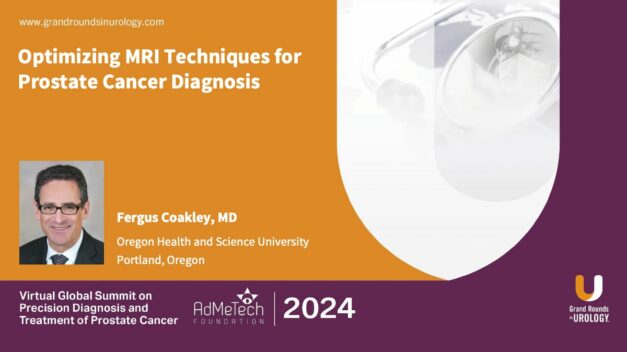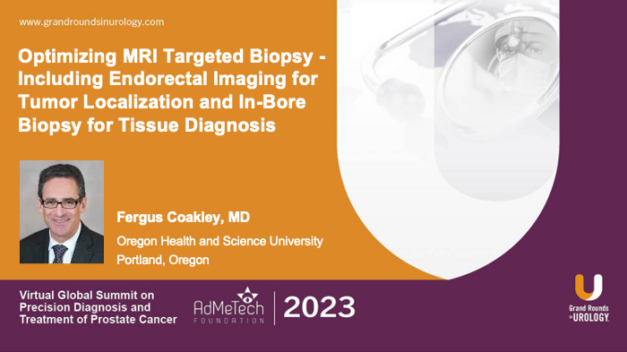Optimizing MRI Techniques for Prostate Cancer Diagnosis
Fergus Coakley, MD, Portland Health and Science University, Portland, Oregon, delivers a 10-minute presentation on optimizing MRI for prostate cancer diagnosis, addressing key shifts in diagnostic paradigms. He explains the transition from systematic biopsies following PSA screening to a targeted approach using multiparametric MRI (mpMRI) and in-bore biopsies. He highlights the superior signal-to-noise ratio of endorectal coils, emphasizing their role in enhancing tumor detection and staging. Through case studies, Dr. Coakley demonstrates the efficacy of high-quality MRI in identifying clinically significant cancers that were missed by traditional methods. Data supporting targeted-only biopsies for positive MRI findings are presented, with discussions on the low yield and increased complications of systematic sampling. Dr. Coakley challenges conventional views on multifocality and secondary foci, showing minimal impact on prognosis. He urges the adoption of advanced MRI-guided techniques while acknowledging the need for further research. This insightful presentation invites viewers to explore evolving strategies in prostate cancer diagnostics and their implications for patient outcomes.
Read More

